
🌿 Let’s Start: Why Am I Obsessed with Amulets?
A while back, I rushed for a high-speed train and tripped over a step—scraped my hand a little, but no
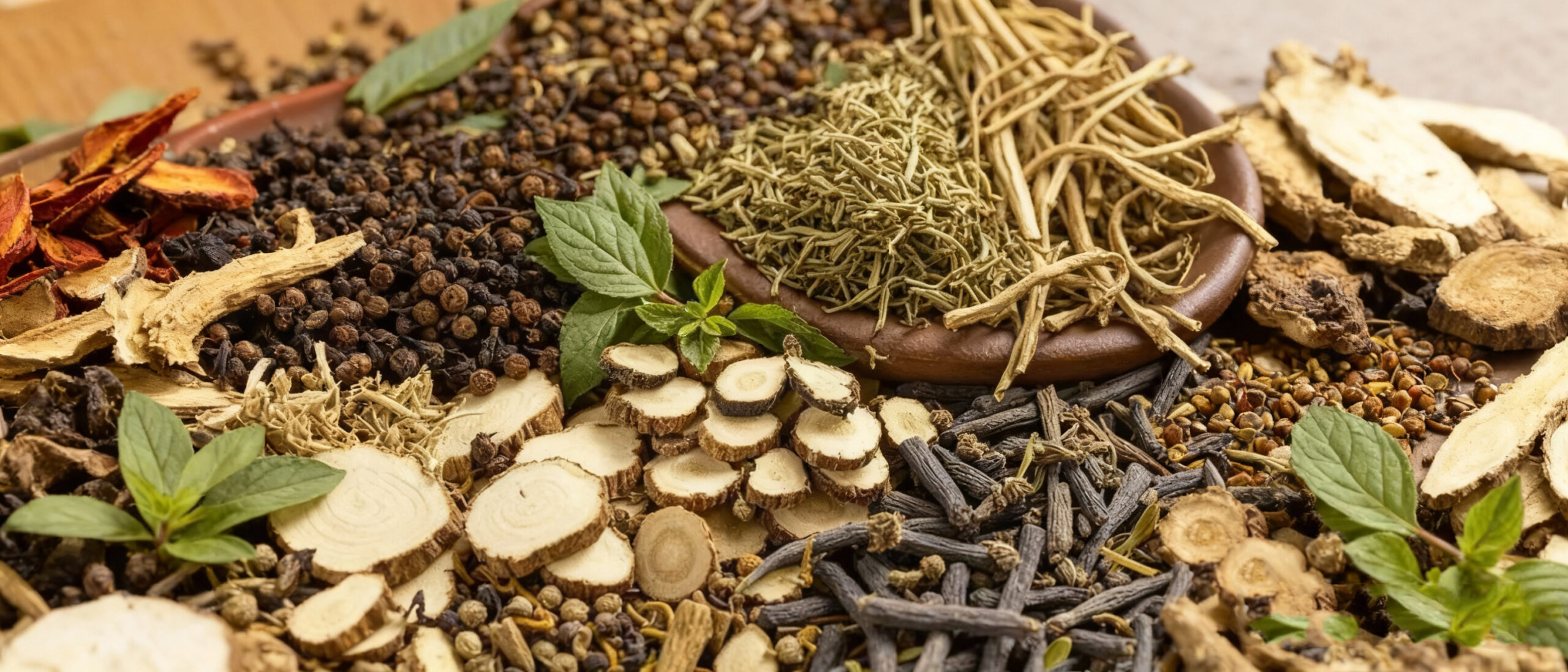
In traditional Chinese health preservation culture, Chinese herbs are never unattainable « medicines ». More often than not, they hide in daily soups and teas, quietly safeguarding our health. Today, let’s take a closer look at five common and practical Chinese herbs – Astragalus (Huangqi), Codonopsis (Dangshen), Dried Tangerine Peel (Chenpi), Goji Berry (Gouqi), and Licorice (Gancao). We’ll explore their unique « skills » and how to seamlessly integrate them into our daily lives.
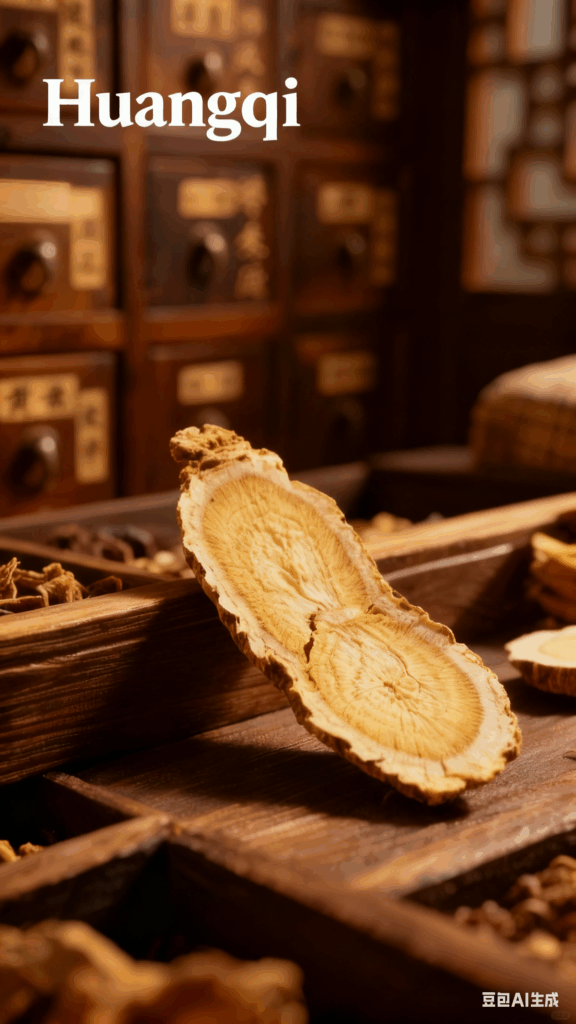
When it comes to Chinese herbs that replenish qi (vital energy in traditional Chinese medicine), Astragalus is definitely a standout « star ». It has a warm nature, a sweet taste, and acts on the Lung and Spleen meridians. Its core effects are replenishing qi and securing the exterior, lifting yang and relieving sagging, and promoting diuresis to reduce edema. In daily life, some friends always feel weak and listless even without doing heavy work, and sweat easily with slight movement. In traditional Chinese medicine, this is often called « qi deficiency », and Astragalus is an excellent helper for regulating this condition.
Astragalus is also very easy to use in daily life. The simplest way is to slice it and steep in boiling water. Take 3-5 dried Astragalus slices, brew them with boiling water, and let it steep for 5 minutes before drinking. It has a light sweet aroma. You can also add a few slices when making soup, such as Astragalus stewed chicken soup or Astragalus, Chinese yam and sparerib soup. This not only enhances the flavor of the soup but also achieves the effect of replenishing qi. However, it should be noted that you should avoid using it when you have a cold, fever, or excess heat syndrome (such as dry mouth and tongue, constipation), to prevent « adding fuel to the fire ».
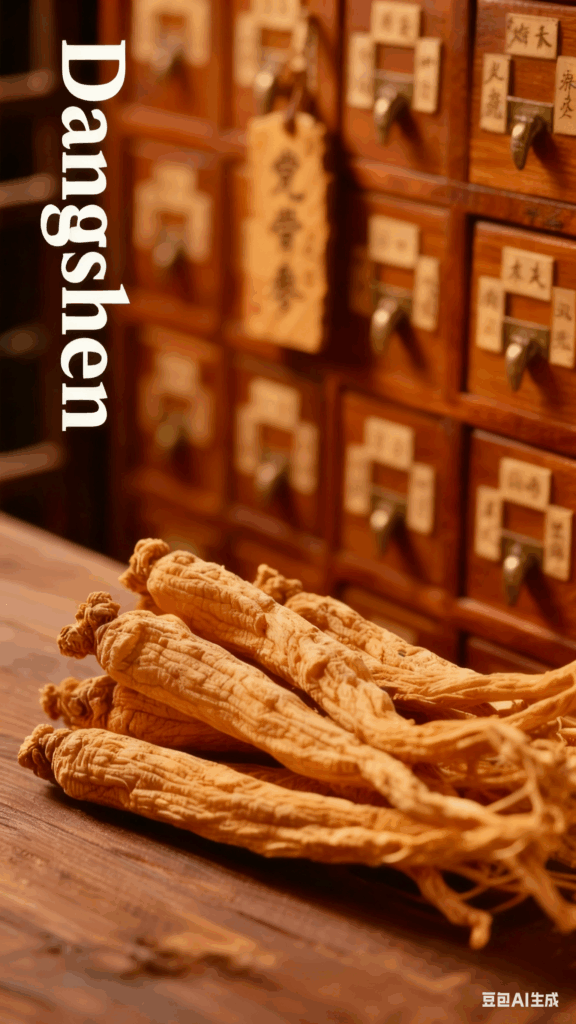
If Astragalus is a « powerful warrior » for replenishing qi, then Codonopsis is a « gentle and virtuous general ». It has a neutral nature, a sweet taste, and acts on the Spleen and Lung meridians. Its main effects are replenishing middle energizer and qi, invigorating the spleen and benefiting the lung, and nourishing blood and promoting fluid production. Compared with Astragalus, Codonopsis has a milder effect on replenishing qi and an additional effect of nourishing blood, making it especially suitable for people with deficiency of both qi and blood – such as those who usually have a sallow complexion, are easily fatigued, have a poor appetite, and are accompanied by dizziness and blurred vision.
Codonopsis pairs well with Astragalus in usage and often appears together in soups, such as Codonopsis and Astragalus black-bone chicken soup. The combination of the two can make the qi-replenishing effect more comprehensive. For individual use, Codonopsis can be boiled with red dates and longan, or stewed with lean meat, which can replenish qi and blood without causing internal heat easily. In addition, for indigestion and loss of appetite caused by spleen and stomach weakness, you can also boil Codonopsis with Chinese yam and Poria cocos for drinking, which has a good regulating effect.
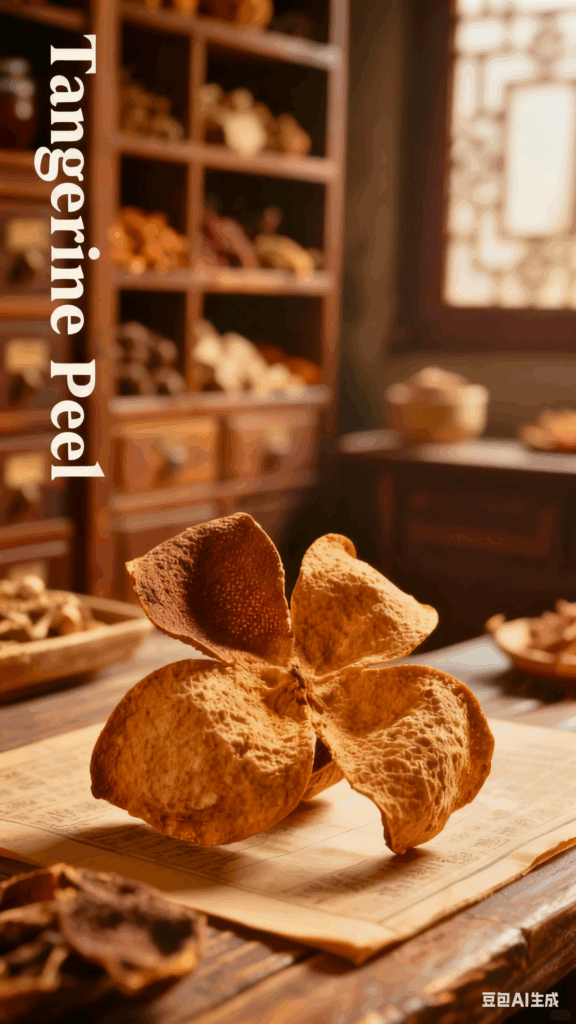
Dried Tangerine Peel is not just ordinary orange peel. It is the dried and mature peel of citrus reticulata and its cultivated varieties, made through sun-drying and aging. The older it is, the better it is. It has a warm nature, a pungent and bitter taste, and acts on the Spleen and Lung meridians. Its main effects are regulating qi and strengthening the spleen, and drying dampness to resolve phlegm, which can be called the « scavenger of the spleen and stomach ».
In daily life, if you feel bloated and have indigestion after eating too much greasy food, or feel heavy dampness and have excessive phlegm and cough on rainy days, Dried Tangerine Peel can be very useful. Brewing a cup of Dried Tangerine Peel water can quickly relieve bloating, regulate qi and resolve phlegm. Adding a piece of Dried Tangerine Peel when stewing soup or meat can not only remove the fishy smell of the meat but also strengthen the spleen and stimulate the appetite, making the soup more fragrant. It is worth mentioning that Dried Tangerine Peel can also be paired with other ingredients. For example, Dried Tangerine Peel with Hawthorn can promote digestion and resolve food stagnation, and Dried Tangerine Peel with ginger can dispel cold and warm the stomach. These are all very practical pairings. However, people with yin deficiency and excessive fire (such as dry mouth and tongue, hot hands and feet) should use it sparingly because it is slightly dry in nature.
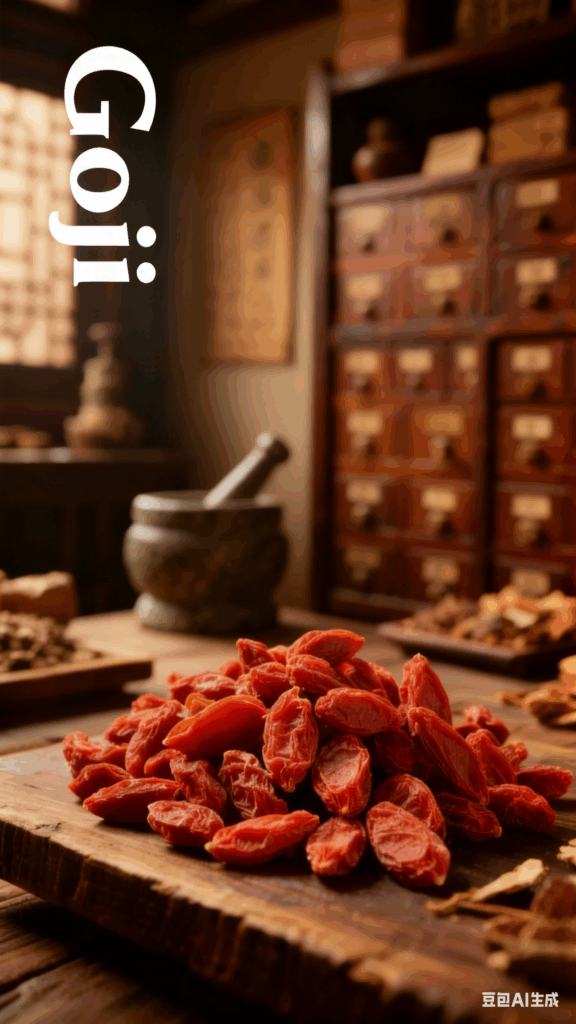
Goji Berry is probably one of the most familiar Chinese herbs to everyone. It has bright red particles and tastes sweet when chewed. It has a neutral nature, a sweet taste, and acts on the Liver and Kidney meridians. It has the excellent effects of nourishing the liver and kidneys, and replenishing essence to improve eyesight. For those who often stay up late and use their eyes excessively, leading to dry eyes and blurred vision, or those with soreness and weakness of the waist and knees, dizziness and tinnitus caused by liver and kidney deficiency, Goji Berry is a good conditioning product.
There are countless ways to use Goji Berry. You can directly grab a handful and eat it as a snack, which is sweet and sour. When making tea, you can pair it with chrysanthemum to make the classic « Goji Berry and Chrysanthemum Tea », which doubles the effect of clearing heat and improving eyesight. Sprinkling a handful when cooking porridge or soup can enhance the flavor and nourish the body. However, it should be noted that Goji Berry has a relatively high sugar content, so diabetics should consume it in moderation. In addition, you should avoid eating it when you have a cold, fever or inflammation in the body.
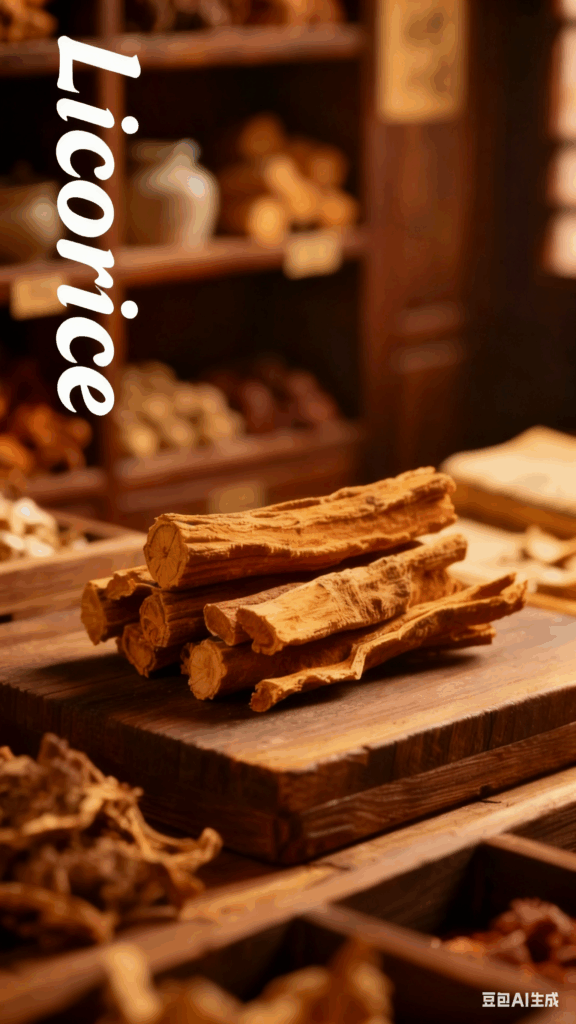
Licorice has a special title in Chinese herbs – « Guolao » (a respected term meaning « national elder »), because it can harmonize the properties of various herbs and make the effect of the prescription more moderate. It has a neutral nature, a sweet taste, and acts on the Heart, Lung, Spleen and Stomach meridians. Its main effects are replenishing the spleen and qi, clearing heat and detoxifying, resolving phlegm and relieving cough, relieving spasm and pain, and harmonizing various herbs.
Although Licorice has many effects, it often plays an « auxiliary role » in daily use. For example, adding a small amount of Licorice when making soup or decocting medicine can neutralize the bitter taste of other ingredients and improve the taste. When you have a sore throat, phlegm and cough, boiling Licorice with Platycodon grandiflorum and Honeysuckle can clear heat, detoxify, resolve phlegm and relieve cough. It must be emphasized here that although Licorice is mild, it cannot be used in large quantities for a long time. Excessive use may lead to water and sodium retention, causing increased blood pressure or edema. The daily dosage is recommended to be controlled at 2-3 grams.
Although these five Chinese herbs are common and practical, they are after all food-medicine homologous ingredients, so their use should be « symptomatic ». Everyone has a different constitution, and the suitable ingredients are also different. For example, people with a hot constitution should use warm herbs such as Astragalus and Dried Tangerine Peel sparingly, while people with a cold constitution should be cautious about using cold combinations. If you are unsure about your constitution or have chronic diseases, it is best to consult a doctor or traditional Chinese medicine practitioner first to ensure that health preservation is safe and effective.
In fact, health preservation is never a complicated matter. By quietly integrating these common Chinese herbs into our daily meals throughout the year and conditioning our bodies slowly, we can keep our bodies in a comfortable state. Which Chinese herb do you like to use for health preservation? Feel free to share your usage tips in the comments section!
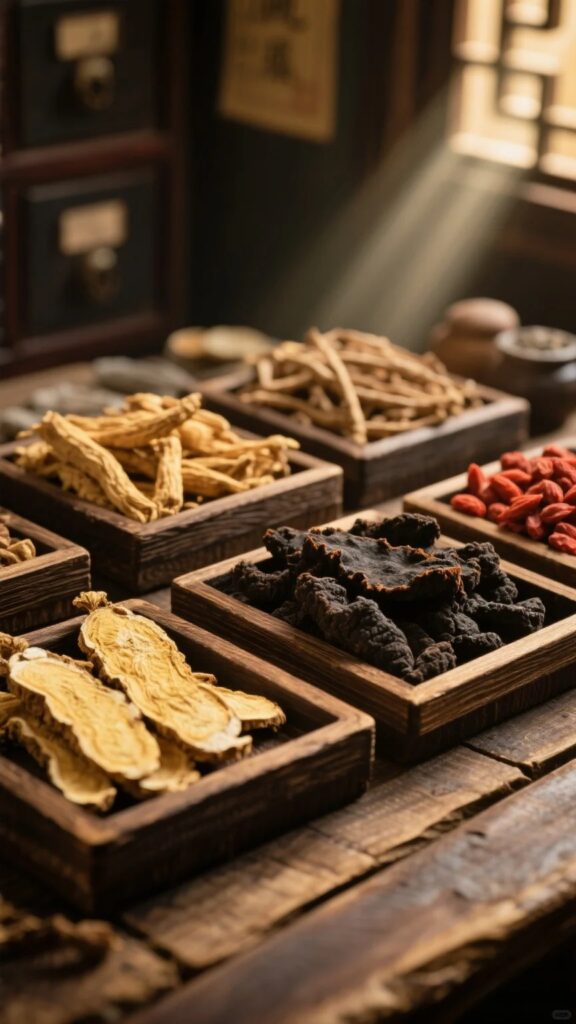

A while back, I rushed for a high-speed train and tripped over a step—scraped my hand a little, but no

Many people associate Feng Shui with ‘mysticism’, but my five years of practical experience tell me that modern Feng Shui
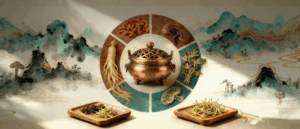
When you see someone on the street wearing a bracelet that emits a natural fragrance—one that’s not as flashy as
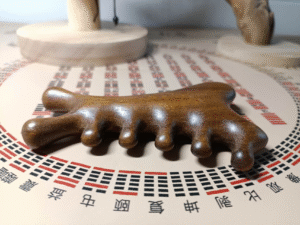
Le Peigne de Méridiens Multifonction : Un Petit Outil pour un Grand Bien-Être Dans notre vie moderne, le stress, la
No account yet?
Create an Account